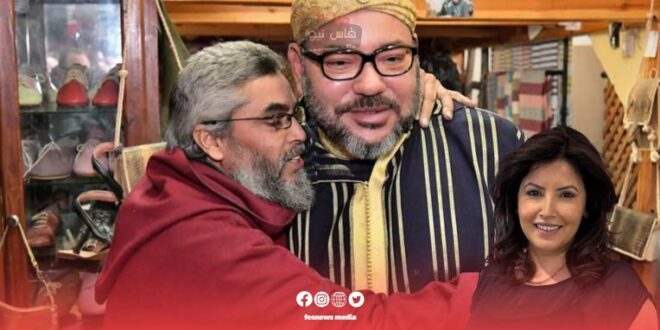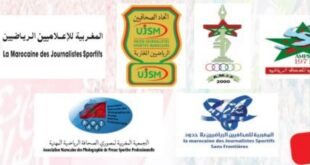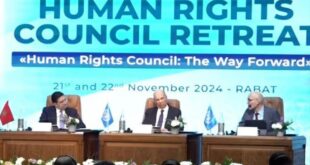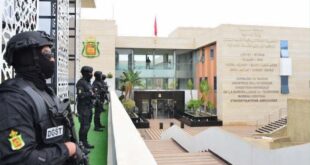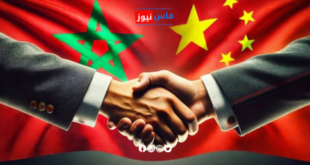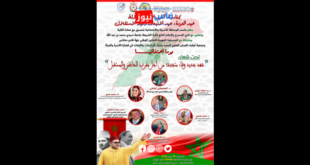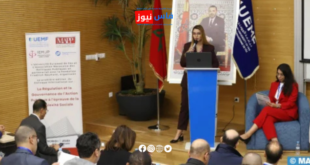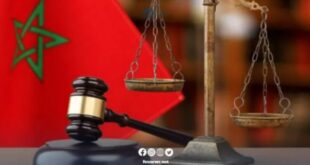First, as a Moroccan immigrant, I extend my warmest congratulations to His Majesty King Mohammed VI on the occasion of the 25th anniversary of His Majesty’s ascension to the throne of the Kingdom of Morocco. I wish His Majesty health, well-being, longevity, success, and happiness for him and the royal family, as well as for all the Moroccan people.
No one can deny the significant achievements that have come to light since King Mohammed VI ascended the throne. Any observer can see these achievements, for example, in the infrastructure development, which has seen a strong push with the construction of roads, bridges, facilities, and the connection of rural areas to electricity and water, among other things.
As a Moroccan woman, I want to focus on what has been achieved for Moroccan women in general and for Moroccan immigrant women in particular, in the Family Code, which His Majesty the King is currently overseeing its revision, as well as in administrative procedures.
The initiative of Morocco’s reconciliation with part of its history through the establishment of the Equity and Reconciliation Commission was a significant event in the field of human rights, achieved by His Majesty the King. It is truly a multidimensional reform system affecting both domestic and foreign policies alike, such as recognizing Amazigh culture and language and establishing a royal institute dedicated to it, the issuance of the 50-Year Report, the National Initiative for Human Development, expanded regionalization, the new concept of authority, the revision of the Family Code, and the 2011 Constitution.
Regarding the issue of our territorial integrity, the establishment of the Royal Advisory Council for Saharan Affairs and the proposal of autonomy for the Saharan regions under Moroccan sovereignty, along with a comprehensive development policy, were significant. International forums have praised this new royal approach to addressing the issue of our territorial integrity, considering it a major step towards resolving this matter.
Morocco’s return to the African Union and the numerous visits made by His Majesty the King to various African countries mark a new turning point in Morocco’s regional and foreign policy. This African orientation of Morocco’s foreign policy aims to intensify cooperation, establish partnerships with many African countries, and enhance investment opportunities in their economies.
Regarding the file of Moroccans living abroad, despite the repeated royal speeches expressing ongoing royal concern, exclusion from political participation and citizenship rights remains the prevalent principle. Yes, we work closely with the Hassan II Foundation for Moroccans Living Abroad, and we commend the expertise it has accumulated, the professionalism of its staff, and its proximity policy in dealing with Moroccans worldwide, both individuals and associations.
However, other institutions related to Moroccans living abroad, such as the Council of the Moroccan Community Abroad and the Ministry of the Moroccan Community Abroad, do not engage with us and remain distant from our reality and issues. This also applies to our relationship with consulates and embassies, which are limited to administrative and official frameworks, despite my involvement as a community and human rights activist and director of an institution specializing in social and health care, including mental health, for many years.
Therefore, we hope for significant improvement in this area for the benefit of Morocco and Moroccans worldwide.
Finally, I hope that, on this occasion, the royal pardon extends to the detainees of the Rif Movement, journalists, and prisoners of opinion and politics so that joy may be more widespread.
Amsterdam, July 28, 2024
Najwa Benmoussi
Director of Zenmu Foundation for Social and Health Care
Community and Human Rights Activist
From: Fes News
 فاس نيوز ميديا جريدة الكترونية جهوية تعنى بشؤون و أخبار جهة فاس مكناس – متجددة على مدار الساعة
فاس نيوز ميديا جريدة الكترونية جهوية تعنى بشؤون و أخبار جهة فاس مكناس – متجددة على مدار الساعة

